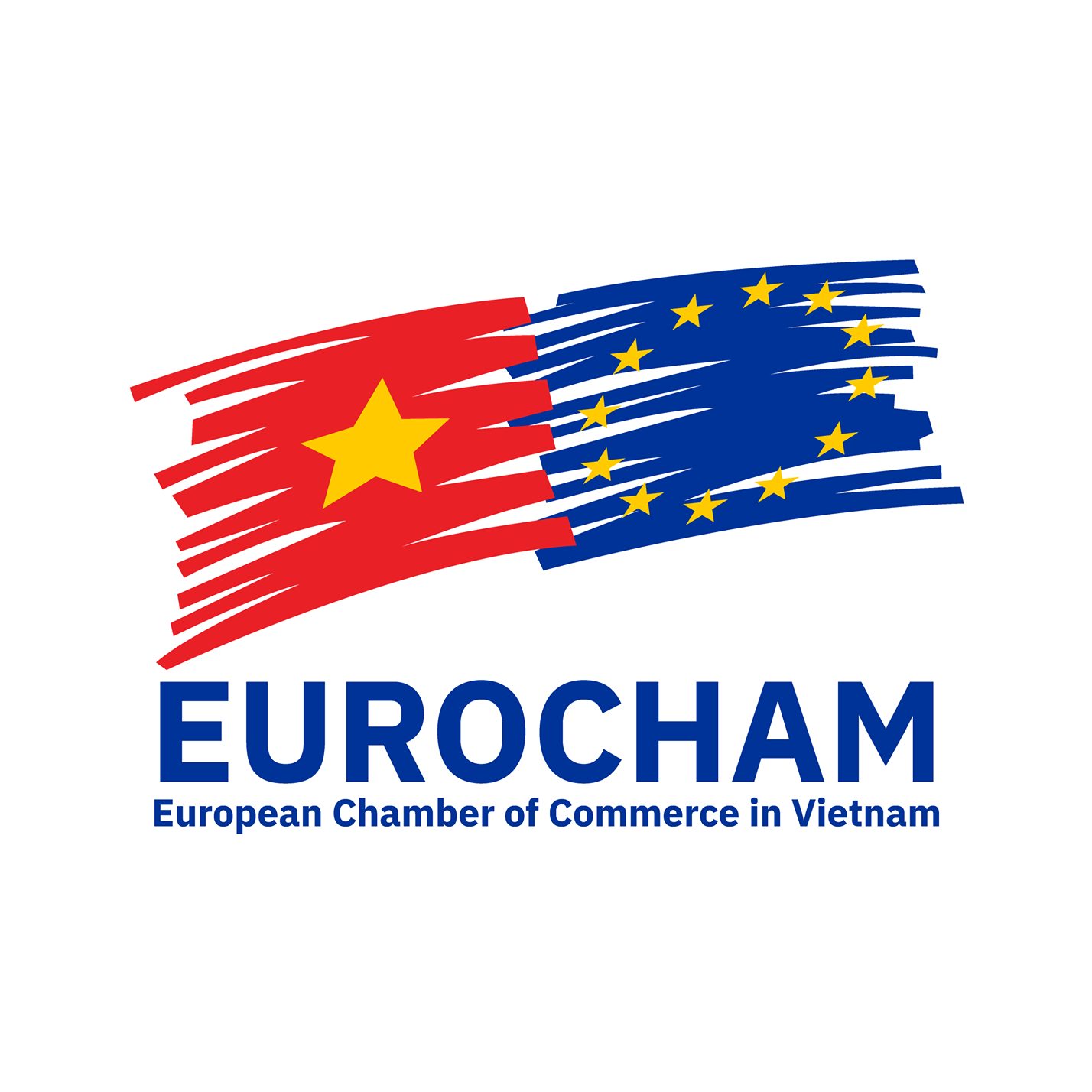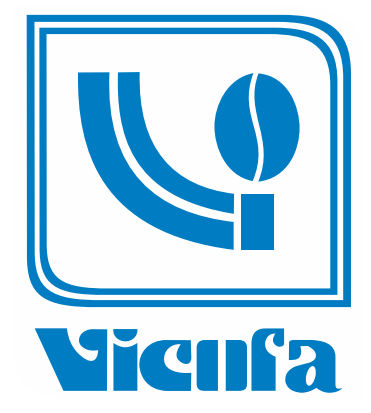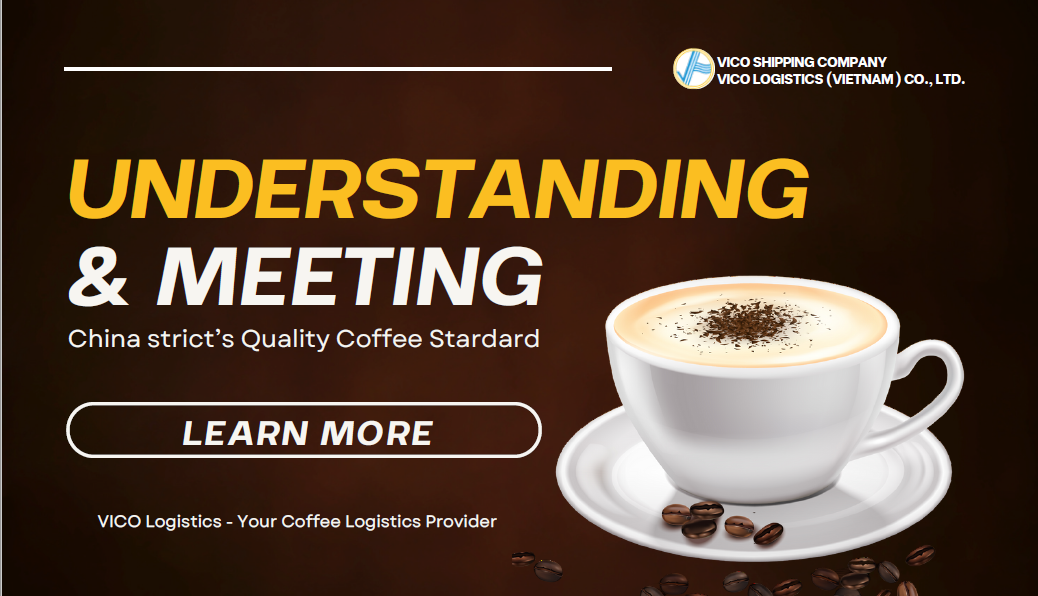
China's rapidly growing coffee market presents a lucrative opportunity for coffee producers worldwide. However, tapping into this market requires more than just delivering a quality product; it necessitates a deep understanding of China's stringent Quality Coffee standards and regulatory requirements. For exporters, particularly those from countries like Vietnam, meeting these standards is crucial to ensuring that their coffee can successfully enter and thrive in the Chinese market. This article explores the key aspects of China’s Quality Coffee standards and offers strategies for meeting them effectively.
>> Overcoming Logistics Challenges in Exporting Vietnamese coffee bean to China
The Rise of Quality Coffee Culture in China
Traditionally a tea-drinking nation, China has seen a dramatic rise in coffee consumption over the past decade. This shift is driven by urbanization, the growing middle class, and the influence of Western culture. Coffee shops have become popular social spaces, and the demand for both instant and specialty coffee is surging.
As the market grows, so does the scrutiny on the quality of coffee products. Chinese consumers, particularly in major cities, are becoming more discerning, with a strong preference for high-quality coffee. This has led to the development of rigorous quality standards and import regulations that coffee exporters must adhere to.
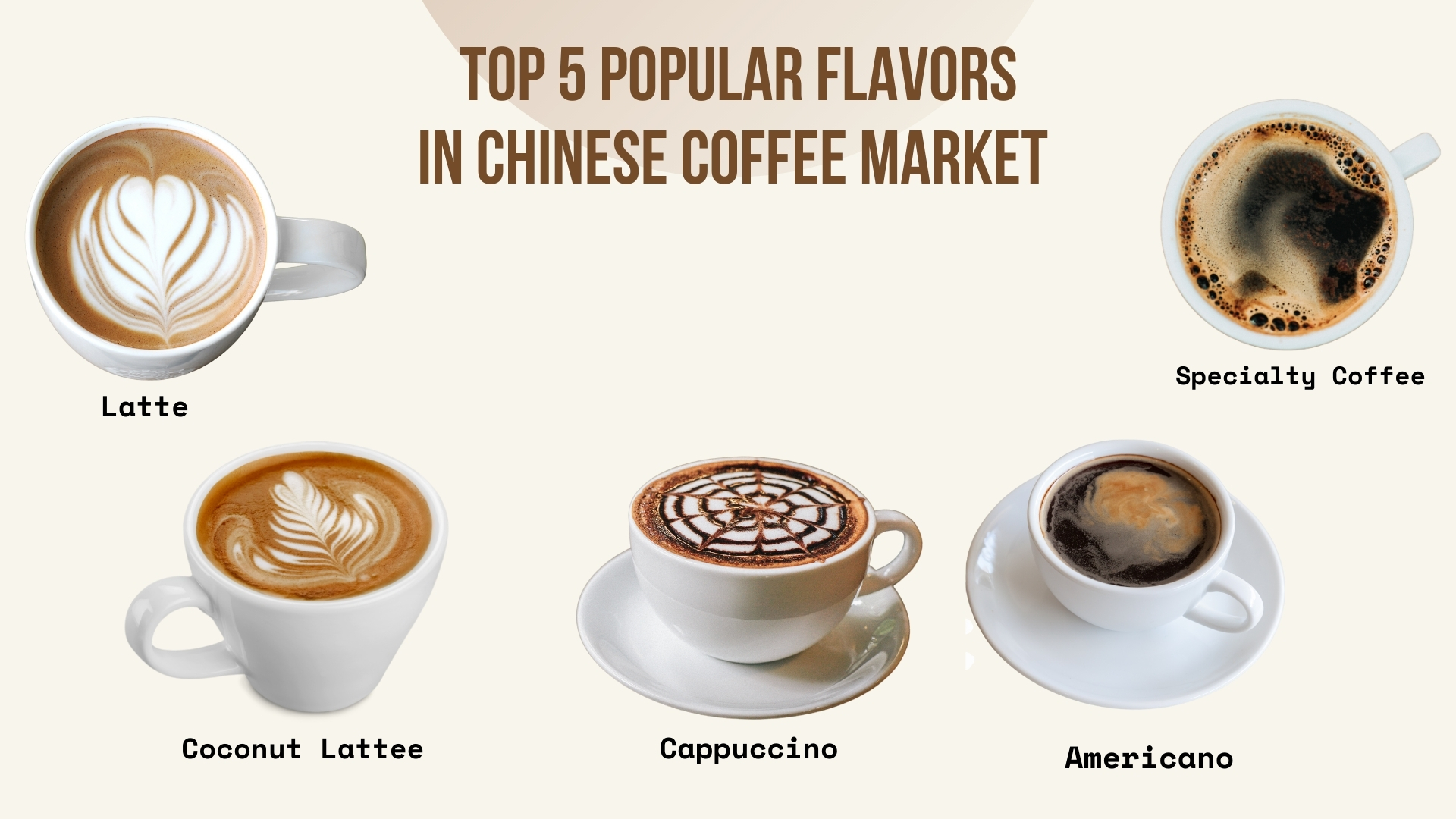
Overview of China’s Quality Coffee Standards
China's Quality Coffee standards are designed to ensure that imported coffee meets the country's expectations for safety, taste, and overall quality. These standards are enforced by the General Administration of Customs of the People's Republic of China (GACC) and other relevant regulatory bodies.
- Moisture Content: One of the key quality indicators for coffee beans is moisture content. High moisture levels can lead to Mold growth and a deterioration in flavour. China's standards typically require coffee beans to have a moisture content of between 8% and 12%. Exporters must ensure that their beans are properly dried and stored to meet this requirement.
- Pesticide Residue Limits: China has strict regulations regarding pesticide residues in imported food products, including coffee. The GACC sets maximum residue limits (MRLs) for various pesticides. Coffee exporters must comply with these limits by using approved pesticides and adhering to recommended application practices. Regular testing of coffee beans for pesticide residues before export is crucial to avoid rejection at Chinese ports.
- Mycotoxin Levels: Mycotoxins, such as ochratoxin A, can be a significant concern in coffee, particularly when beans are not properly stored. China's regulations specify permissible levels of mycotoxins in coffee, and exceeding these limits can result in the rejection of shipments. To mitigate this risk, exporters should implement rigorous storage and handling practices to prevent the growth of Mold and ensure regular testing for mycotoxins.
- Bean Size and Defects: Chinese consumers and importers often have specific preferences regarding the size and quality of coffee beans. Coffee is typically graded based on bean size, uniformity, and the presence of defects such as broken beans, foreign matter, or discoloration. Exporters should ensure that their coffee meets the preferred grade standards and is carefully sorted to minimize defects.
- Sensory Quality: The flavour profile of coffee is a crucial factor for success in the Chinese market. This includes aspects such as aroma, acidity, body, and overall balance. Exporters should focus on producing coffee that aligns with the taste preferences of Chinese consumers, which often lean towards smoother, less acidic profiles for everyday consumption. Conducting sensory evaluations and collaborating with local partners who understand the market can help ensure that the coffee meets consumer expectations.
>> Vietnam to China Coffee Export Journeys with VICO Logistics
>> What are Chinese consumer's habits in the coffee world now?
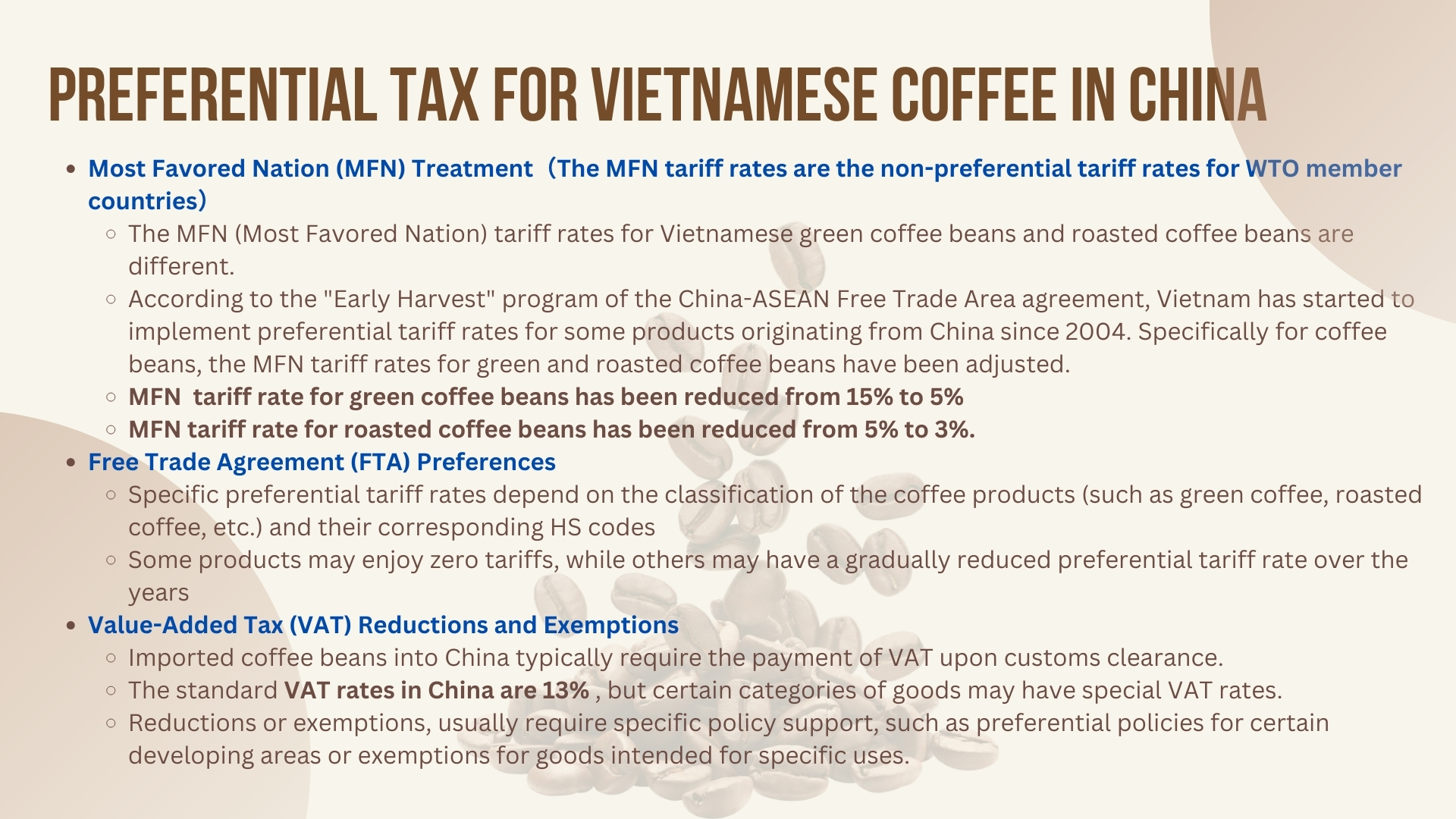
Meeting China’s Quality Standards: Strategies for Exporters
Successfully meeting China’s Quality Coffee standards requires a proactive and comprehensive approach. Here are some strategies that exporters can employ:
- Invest in Quality Control Systems: Implementing robust quality control systems is essential for ensuring that coffee meets Chinese standards. This includes regular monitoring of moisture content, pesticide residue levels, and mycotoxin presence throughout the production and processing stages. Investing in laboratory testing equipment or partnering with certified laboratories can provide the necessary assurance that coffee is compliant before it is shipped.
- Adopt Best Practices in Coffee Cultivation and Processing: Adhering to best practices in coffee cultivation, harvesting, and processing is crucial for maintaining quality. This includes using approved pesticides, following recommended drying and storage procedures, and minimizing the risk of contamination. Training farmers and workers on these practices can help improve the overall quality of the coffee.
- Certification and Traceability: Obtaining certifications such as UTZ, Rainforest Alliance, or Fair Trade can enhance the credibility of the coffee in the Chinese market. These certifications demonstrate a commitment to sustainable and ethical practices, which are increasingly valued by Chinese consumers. Additionally, implementing traceability systems allows exporters to provide detailed information about the origin and production process of the coffee, building trust with importers and consumers.
- Collaborate with Chinese Importers: Establishing strong relationships with Chinese importers is key to understanding market preferences and regulatory requirements. Importers can provide valuable insights into consumer trends, preferred coffee profiles, and any changes in regulations. Regular communication and collaboration can help exporters tailor their products to meet the specific demands of the Chinese market.
- Continuous Improvement and Adaptation: The coffee market in China is dynamic, with evolving consumer preferences and regulatory landscapes. Exporters should continuously monitor market trends and be willing to adapt their products and processes to meet changing standards. This might include exploring new processing techniques, experimenting with different coffee varieties, or adjusting the flavour profile of the coffee to suit emerging consumer tastes.
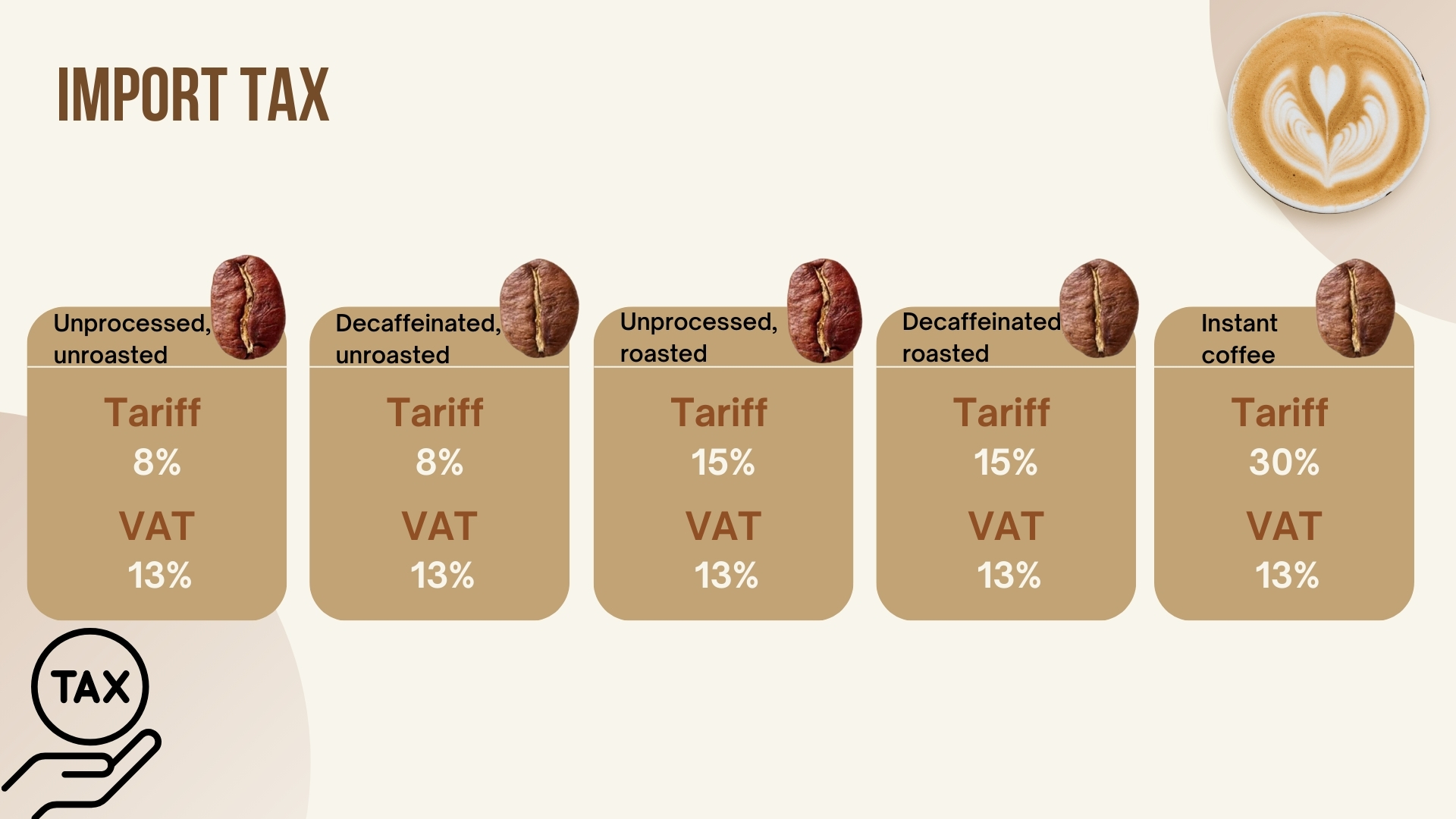
Conclusion
As China’s coffee market continues to expand, understanding and meeting the country’s strict Quality Coffeestandards is crucial for exporters aiming to succeed in this lucrative market. By investing in quality control, adhering to best practices, obtaining certifications, and collaborating with local partners, coffee exporters can ensure that their products not only meet but exceed the expectations of Chinese consumers. In doing so, they can establish a strong foothold in one of the world’s most promising coffee markets, ensuring long-term growth and success.
VICO Logistics is your trusted partner in navigating China's complex coffee market. Our comprehensive logistics services encompass everything from origin verification and quality inspection to transportation, warehousing, and customs clearance. We adhere to the strictest quality and safety standards, ensuring your coffee meets Chinese regulatory requirements. Furthermore, our in-depth market analysis helps you identify opportunities and optimize your product positioning for maximum impact.
---
VICO – Coffee Logistics Provider
Premium member of Eurocham, JCtrans, VLA, VCCI, VITAS... associations
Owned offices: Hong Kong (headquarters), China (Shenzhen, Shanghai), Vietnam (Ho Chi Minh, Da Nang, Hai Phong).
Follow us for more valuable information
Book now: https://vico.com.hk/#quotation
Contact us: mkt4_hcm@vico.com.hk (For business development)
